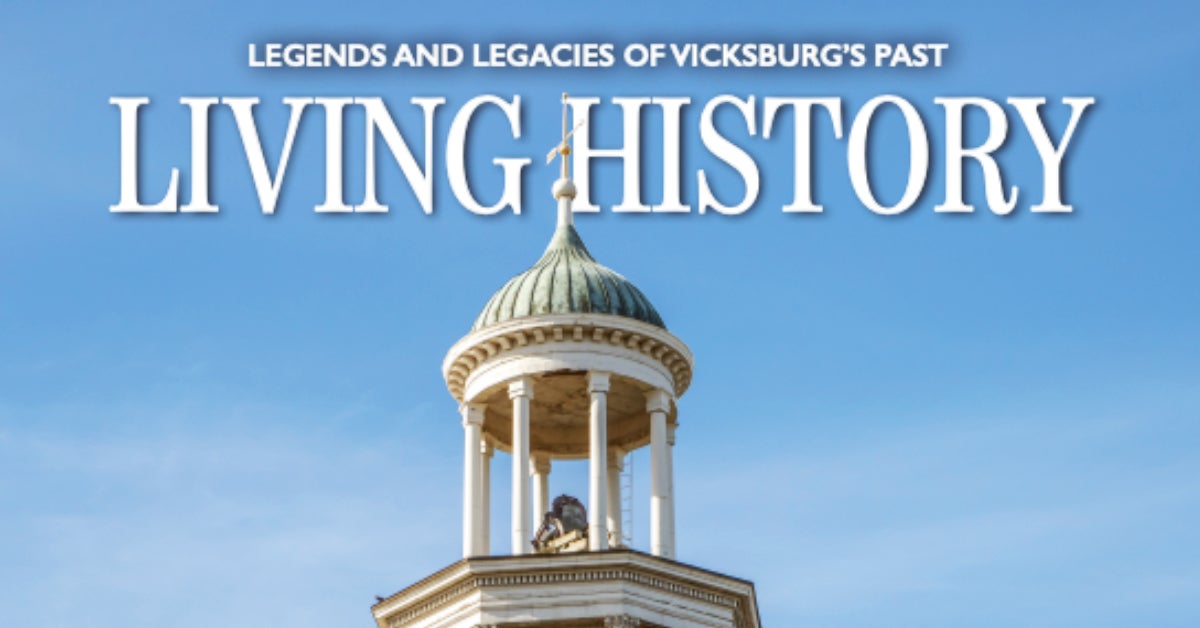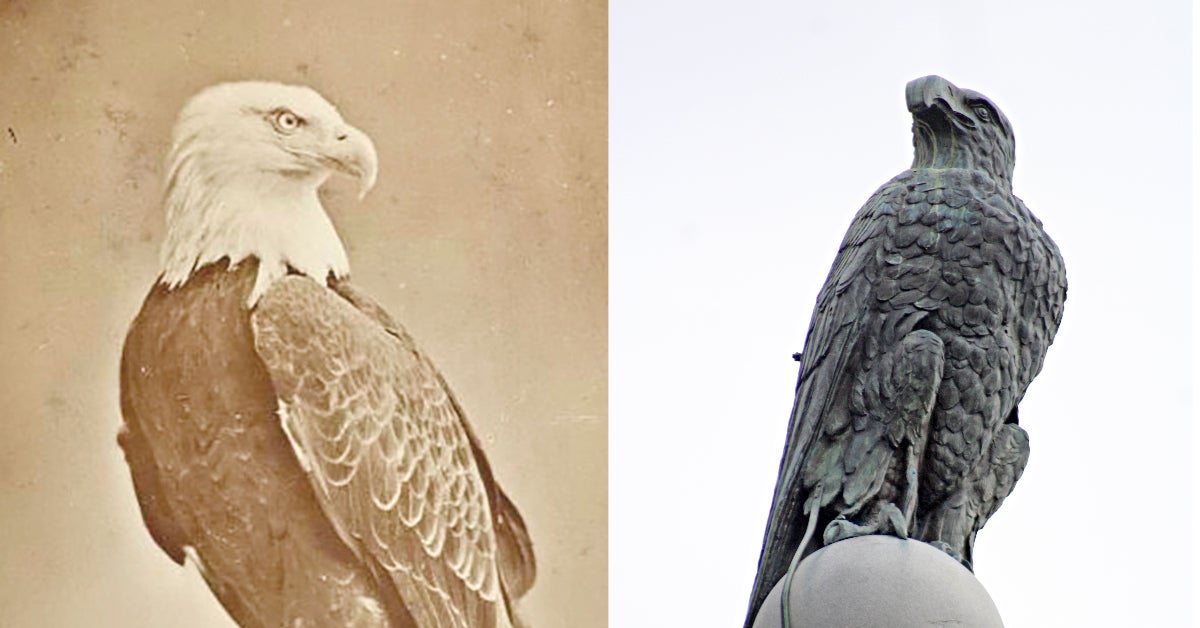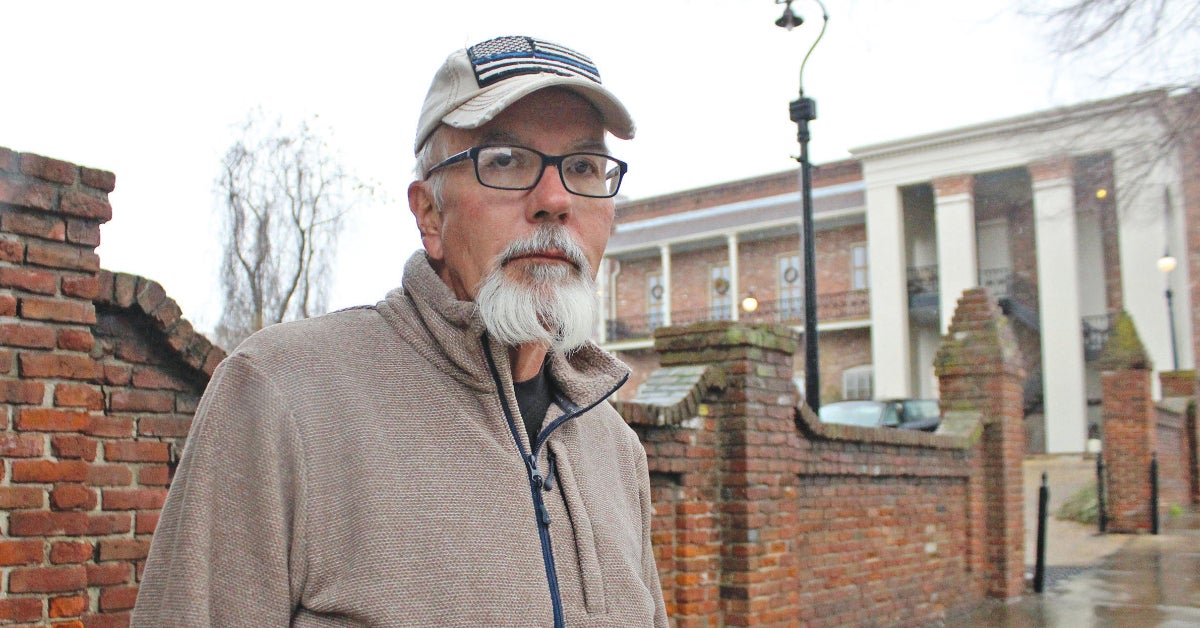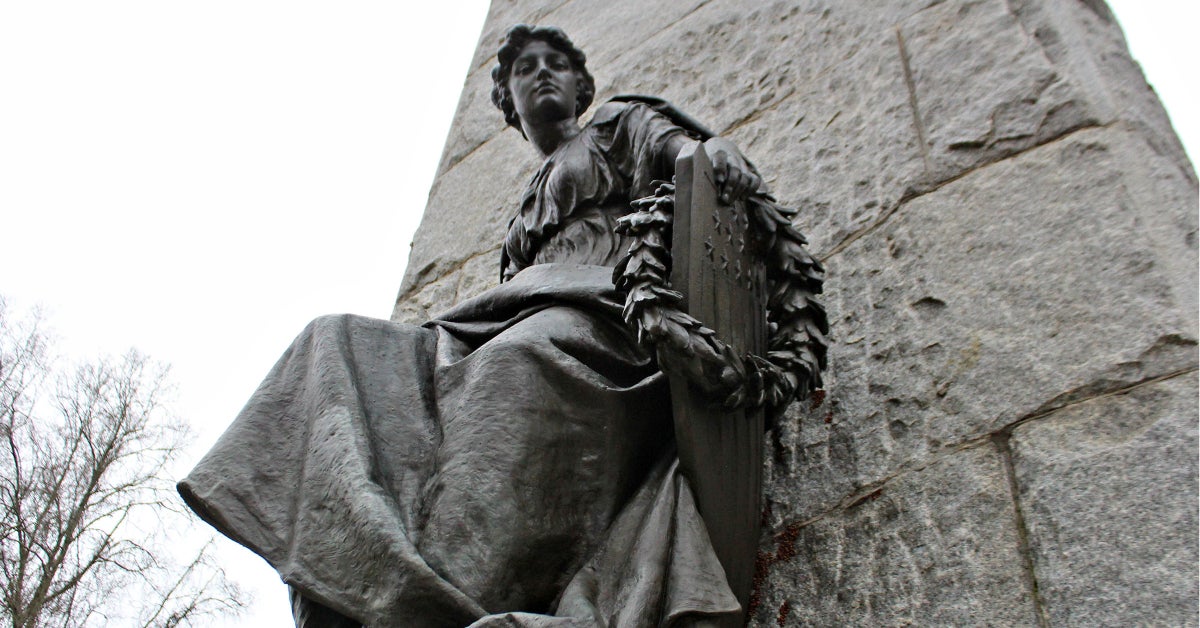DESCENDANTS: Vicksburg’s past lives on through its people
Published 7:00 am Saturday, February 25, 2023
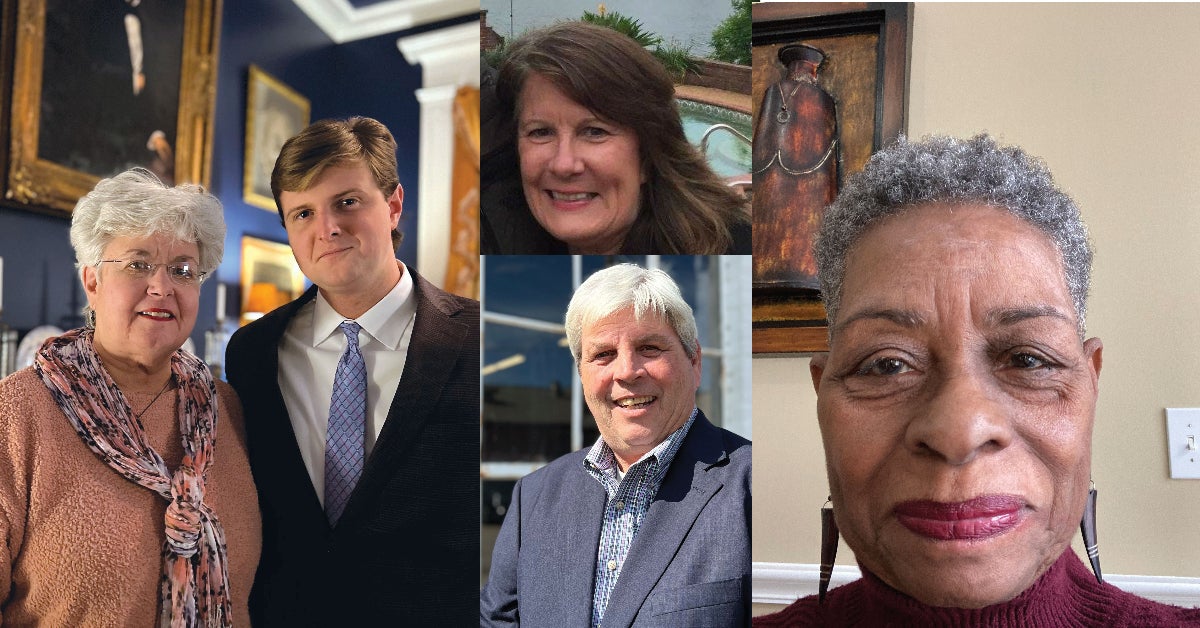
- Clockwise from left: Karen Gamble and Sam Andrews, Jane Lauderdale Flowers, Thelma Sims Dukes and Will Halpin.
The Last Gamble
Patience Potticary Gamble didn’t do much more to become famous than cross the street — but the legacy of her family is one that’s endured in Vicksburg for six generations.
Today, the family’s history is shouldered by Patience’s direct descendants: Karen Gamble and her nephew, Sam Andrews, who both trace their lineage through Patience’s son, Franklin Pierce Gamble, the only one of her eight children to remain in Vicksburg in the years following the Civil War. Gamble’s thoughts on her great-great-great-grandmother are fairly simple: Thank God we don’t share a name.
“My biggest thought is, I’m thankful to God for my mother because it turns out that, historically, in our family, dating back to Andrew Jackson Gamble and Patience Potticary Gamble and all the offshoots, people in the Gamble family had named children for this person or that person,” she said. “My father wanted to name me, the second child, Patience Potticary Gamble. And my mother said, ‘Hell no.’ As it turned out, it was quite fortuitous because I am not patient.”
An English immigrant who married an Irish immigrant, Patience and her husband Andrew Jackson Gamble built themselves up from very little to relative prominence in Vicksburg, thanks to Andrew’s successful marble monument business. An eagle-eyed passerby in Cedar Hill Cemetery will see no fewer than a dozen headstones marked “GAMBLE” on the back, denoting his work.
In addition to their eight children, the Gambles also had a home on Cherry Street (which was later bulldozed to make room for Carr Central High School) and a summer home across town on what is now called Mundy Street. It was while walking to a cave from this house, seeking shelter from Union shelling of the town, that Gamble was struck by a shell and killed on June 28, 1862.
Her name was then etched in history as the first civilian casualty of the Siege of Vicksburg. However, both Karen and Andrews said that’s not the end of their story. Thanks to a maiden aunt, Anna Claire Gamble, whom Karen described as the “holder” of the family, the legacy of Patience lived on.
“Anna Claire and her family and her parents before her and their parents were all quite aware of Patience Potticary Gamble and there was a sense of pride,” Karen said. “The fact that there were Gambles in Vicksburg for so many years, and right now, I’m a Gamble by blood — but I refused to take my husband’s name because I knew I’d be the last Gamble; I am today the only Gamble by name left in Vicksburg.”
Being yet another generation removed from Patience, Andrews (whose middle name is Gamble) said he finds pride in his family’s legacy in Vicksburg, beginning with Franklin Pierce Gamble — whom some reports indicate was holding his mother’s hand at the time of her death.
“Their story’s had to wind its way down over time,” Andrews said. “The Gambles came here as immigrants but in the years that followed, they acquired a sizeable estate. They got here relatively obscure, but I think the defining characteristic of these people was that they made something of themselves. That’s something that is the overriding theme of these people.”
Frank, as his descendants affectionately call him, worked at a foundry downtown and became “one heck of an upstanding citizen,” Andrews said. “They got here with nothing but chose to make something of themselves.”
In addition to the hardworking spirit of those who came before them, Karen and Andrews also said they find solace in knowing the Vicksburg they know in 2023 isn’t as far removed from the city of 160 years ago.
“When I was a child growing up in Vicksburg, I had a classmate, Marilyn Jamison, who lived in the house on Mundy Street right where Patience was killed,” Karen said.
Andrews echoed his aunt’s sentiments, adding that, as someone who lives in the Vicksburg Historic District and owns Anchuca Mansion with his wife, Anna Kate Doiron Andrews, he is in the unique position of living mere blocks from where his family’s history began.
“Four blocks from Anchuca is where she was killed. Today, you’ve got a sixth-generation descendant who lives blocks away from where she lived. I hadn’t been to a whole lot of places, but that seems pretty rare to me,” Andrews said. “As a younger person, it’s amazing to know that the place where you live with your family, where your business is, the places where you’re walking and the things you’re doing are steps away from where all this took place. That doesn’t happen everywhere.”
In the near future, Karen and Andrews said, along with their family they are working with the Mississippi Department of Archives and History to erect a historic marker in Patience’s memory.
It will be funded in full by the family, Andrews said, because Patience was “the giver of charity, not the recipient of charity.”
“A Brigadier General M.L. Smith’s report of Vicksburg reads, ‘The report of the struggle of Vicksburg would be incomplete without the following merited tribute: During an engagement on the 28th, a most-esteemable lady, Mrs. Gamble, lost her life by the fragment of a shell striking her while leaving the city.’ That says just about everything you need to know,” Andrews said.
Anchuca Mansion provides a glimpse into Patience’s life and death. Although she never lived in the home, Andrews has outfitted it with reminders, clippings and photographs to commemorate his great-great-great-great-grandmother. And one special piece of furniture is there as well — her potty chair, tucked in the corner of the ladies’ parlor.
Fight of our Fathers
Thelma Sims Dukes is but one of many descendants of William “Bill” Sims, and counts herself lucky to have ties to Vicksburg.
Sims was Dukes’ great-great-grandfather, a man born into slavery who ultimately served with the Third U.S. Colored Calvary in the Union Army during the Civil War and fought at Milliken’s Bend. In 1896, Sims purchased 100 acres of land in the Freetown community in Warren County.
Today, 10 acres of land remain in the family’s possession, with Dukes as one of the chief preservationists of the property. The family carries with them a particular devotion to keeping the land as a gathering place for reunions and a monument to Sims’ life.
“I didn’t grasp as a child or a young person the importance of my great-great-grandfather’s service in the Civil War,” Dukes said. “My father died young, so stories that might have been told were lost. My awakening of (Sims’) service came with Vicksburg’s first Black Mayor, Robert M. Walker, and his 15-year struggle to get the ‘1st and 3rd Cavalry Commemoration for their participation in the Vicksburg Campaign,’ monument.
“It was the first honor for Blacks in a national park in the country,” she added. “That was 139 years after the Civil War ended.”
Sims died in 1930 at the age of 91 — in Freetown.
Dukes said she treasures her family’s history in her heart, because she knows many Black people can’t trace their history the way she has. The way she put it is, “history is late in coming to us,” when referring to the fear many of her ancestors felt in telling their stories.
“Now that I know the true history of his service, (Sims) was more of a Freedom Fighter than a soldier,” Dukes said.”(Growing up), I was proud, but I had no understanding. Today, I am so proud of him and to know that he fought in that awful Milliken’s Bend battle so bravely, is chest-bursting.”
Dukes, who now lives in Jackson but spends much of her time in Vicksburg, said she feels pride in her heritage, knowing the fruitful life her twice-great-grandfather was able to lead after the Civil War. That sense of pride is what inspired her to hold onto her maiden name — even what kept her from changing her name to one of African etymology.
“I didn’t want to shed the Sims’ part because of my relationship to William ‘Bill’ Sims,” she said.
His descendants are still working to develop more of the memorial park established in his honor. As the William “Bill” Sims Foundation historian, Dukes serves as the mouthpiece for her family.
It is vital to the younger generations, she said, to keep perpetuating the history of her great-great-grandfather — not only so he isn’t forgotten, but so his story may inspire others as they face adversity.
“As in all of our lives, the endurance of our ancestors is what sustains us,” Dukes said. “It is true that we live in the state of twoness, that the brilliant scholar W.E.B. Dubois said was a double consciousness. I try hard to keep the two souls from warring. I try to pass on the knowledge of the struggle for Black people to use to keep their souls from being torn asunder.”
Flowers searching in the weeds
Jane Lauderdale Flowers is a lifelong Vicksburger, but she only recently learned how deep her family’s roots run in the River City.
Being inspired by two friends, Rosemary Etheridge Palermo and Anne Claire Fordice, who were not only bitten by the genealogy bug, so to speak, but were also able to establish a family connection with Flowers by tracing ancestry, Flowers did a little digging of her own.
“Living here all my life and finding out that my great-great-grandfather, John Francis Lauderdale, was a Confederate Soldier and that he’s buried in the city cemetery, nobody ever told me that,” Flowers said. “He was injured twice and in some of the toughest battles, and he’s out there in Soldier’s Rest.”
Flowers was referring to her Lauderdale family, on her father’s side, who settled in Vicksburg after the Civil War. But her mother’s side also had ties to Vicksburg, she soon discovered. The history of Andreas Jenne, Flowers’ great-great-grandfather on her father’s side, extends past the Civil War.
Jenne, a German immigrant owned Magnolia Coffee House on Levee Street. He died in 1859, leaving at least one child to survive the Siege of Vicksburg.
Now retired, Flowers spends much of her time giving tours of historic Vicksburg. Knowing her family’s ties to the city, she said, is something she cherishes as she leads others back in time.
“Sometimes, when I give the tours, I kind of wonder what life was like for them back then,” she said. “It was a tough time.”
Christ Episcopal Church, for example, was the site of an 1874 wedding of George Jenne, her great-grandfather.
It’s not just walking in and amongst the history each day that fascinates her, Flowers said; it’s also the thrill of the hunt, finding clues to her family’s past. For example, newspaper ads or stories mentioning her twice-great-grandfather’s coffee shop are a wealth of information.
Flowers isn’t just practicing as a scrapbooker of historic clippings, either. She currently has Trent Lewis, the Cemetery Doctor, working to repair Andreas Jenne’s obelisk in Cedar Hill Cemetery.
“The obelisk has fallen off the tombstone,” she said. “It was put there in 1859. And around it, there are symbols of children that died and others buried underneath that tombstone.”
Flowers said she didn’t grow up with a sense of pride in her family’s history, because she simply didn’t know it.
However, she now finds a sense of pride and of honor to be a part of one of Vicksburg’s many multi-generational families.
“I guess I never had thought about this growing up since I didn’t know that my great-great-grandfather, Andreas Jenne, was here before the Siege,” she said. “I have always been so proud to be from Vicksburg and knowing this history now helps me to realize why I have loved my hometown so much.
“I can’t imagine my great grandfather, George Jenne, being 12 and living here through the Siege. Knowing that he got married for the first time in Christ Episcopal Church in 1874 makes this history just come alive,” she added. “And also learning that my great-great-grandfather on my mother’s side, a Yankee who came to Vicksburg soon after 1860, and stayed here until he died also lets me know how much my family loved this area. Two of my three children live here and we enjoy our hometown.”
Born a Vicksburger
The Halpin surname has become synonymous with Vicksburg’s entrepreneur and merchant community over the last 160 years — but Vicksburg is only home to a few remaining descendants.
Will Halpin is one of those, and coincidentally, the Halpin family’s legacy in the River City doesn’t start with a Halpin at all, but with a man named Wallin.
Eric William Wallin (pronounced Wall-een), is Halpin’s great-great-grandfather and was the Mayor of Vicksburg from 1866 to 1867. His shortened term as mayor was due in part to the Union occupation of Vicksburg following the end of the Civil War.
“The story we heard throughout the years was that he resigned,” Halpin said. “But he was instrumental in getting the Constitution Firehouse built. The first horse-drawn fire engine came in, and it had a sign that read “E.W. Wallin, Mayor, 1867,” on it.
Moving up a generation, Wallin’s daughter, Barbara, married John Francis Halpin I between 1870 and 1880, and that’s when the family really rose to prominence.
John Halpin, borne of Irish immigrants whose family first immigrated to Cincinnati, Ohio before settling in Vicksburg, became well-known in the Vicksburg area as an entrepreneur.
“John F. ended up doing very well for himself,” Halpin said. “He was a true entrepreneur. He was a grocery wholesaler, he opened a bank with John Alexander Klein and on the murals (at the Vicksburg waterfront) the first one you come to, if you look on the back of the building, it says “Halpin and Bowen” on it.
The way the family wound up in Vicksburg, Will said, was either by sheer misunderstanding or perhaps, fortune.
“John F.’s father, Jeremiah Halpin, was one of 13 children. Jeremiah heard the streets were paved with gold in Vicksburg, Mississippi, so he puts the family on the riverboat heading South,” he said. “They get off at Vicksburg only to find out it looked like gold when the sun set on the brick streets. We heard that story growing up our whole lives.”
Unlike Wallin, with his political aspirations, a faction of the Halpins owned a saloon near what is now known as the Jackson Street Community Center.
Will said he’d once aspired to reopen the bar but decided he’d better stay out of that business.
In the years following the Civil War, the Halpin name rose to further prominence. In the Eagle Lake Area, Halpino Lake remains as an homage to Halpino Plantation, which was established after the war and jointly owned by John Francis Halpin I and Wallin.
Halpin I did well in the banking business, but it also proved to be his demise.
“The bank went solvent, and he made sure every depositor was repaid,” Will said. “That’s the way he lost his fortune, or at least the way we always heard. We also heard that the second generation of the family sat on the front porch and drank it away, so who knows.”
Coming from a long line of strong personalities and colorful, hardworking characters is something in which Will said he finds great pride. It’s also been his motivation to remain in town and close to his roots over the years.
“The main reason I stayed in Vicksburg is, it’s like the old show ‘Cheers.’ I know everybody, and everybody knows me,” he said. “I’ve traveled the world, all over the country, and the best sentence in the English language is ‘I’m on the way home.’
“I was born a Vicksburger, and I’m gonna die a Vicksburger.”


